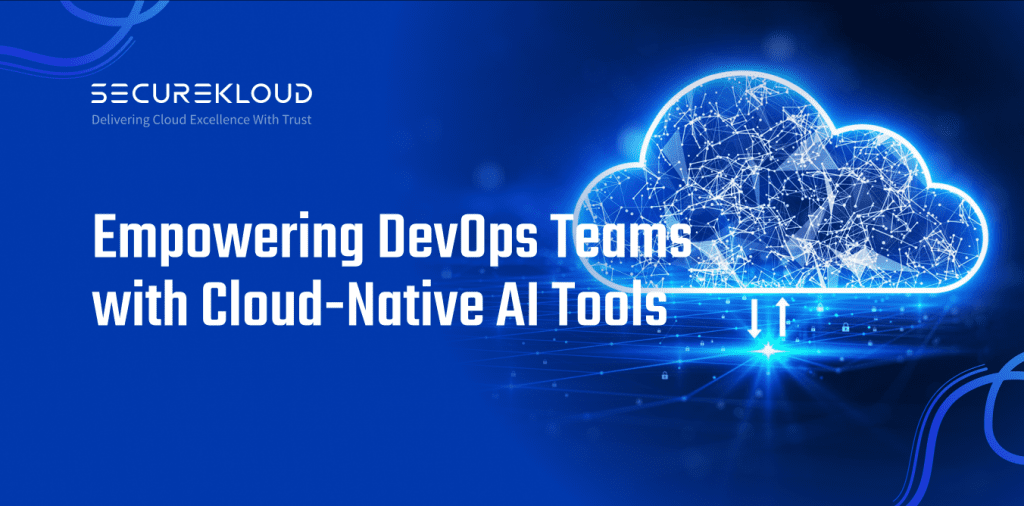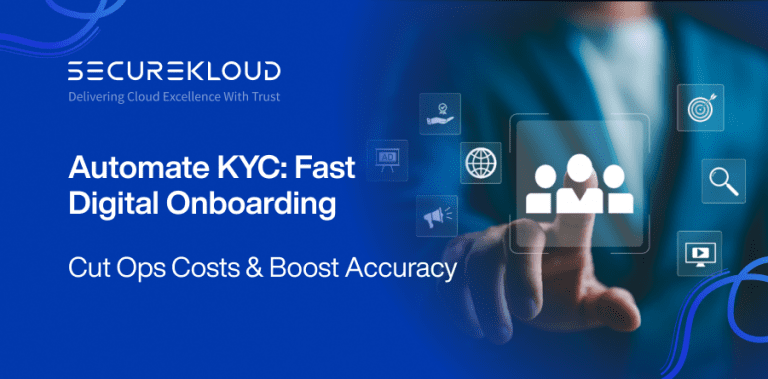- 4Minutes
- 807Words
- 110Views
DevOps has become the backbone of modern software development, enabling teams to deliver high-quality applications quickly and efficiently. However, as development cycles shorten and infrastructure complexity grows, DevOps teams face increasing challenges in maintaining seamless collaboration, scalability, and system reliability. This is where cloud-native AI tools come into play, offering automation, intelligent insights, and enhanced workflows that empower DevOps teams to overcome these hurdles and thrive in fast-paced environments.
In this blog, we’ll explore how cloud-native AI tools are transforming DevOps practices, streamlining operations, and driving innovation.
What are Cloud-Native AI Tools?
Cloud-native AI tools are artificial intelligence-driven solutions designed specifically for cloud environments. These tools leverage the scalability, flexibility, and distributed nature of the cloud to provide advanced capabilities like real-time monitoring, intelligent automation, and predictive analytics. For DevOps teams, cloud-native AI tools integrate seamlessly into their workflows, enabling smarter decision-making, enhanced performance, and faster issue resolution.
How Cloud-Native AI Tools Empower DevOps Teams
Cloud-native AI tools bring a range of benefits to DevOps workflows, addressing pain points and enabling teams to work more effectively. Here’s how these tools are empowering DevOps teams:
- Automating Repetitive Tasks: One of the biggest time sinks for DevOps teams is managing repetitive, manual tasks such as provisioning resources, configuring environments, and deploying updates. Cloud-native AI tools automate these processes, freeing up valuable time for teams to focus on strategic objectives. For example, AI-driven orchestration tools can automatically provision infrastructure based on predefined templates, scale resources dynamically, and deploy applications across multi-cloud environments. This reduces manual effort and ensures consistency across deployments.
- Intelligent Monitoring and Observability: Cloud-native AI tools enhance observability by continuously monitoring applications, infrastructure, and networks. These tools analyze massive volumes of telemetry data in real-time, detecting anomalies and providing actionable insights to prevent issues before they escalate. Predictive analytics capabilities also allow teams to foresee system failures or capacity constraints, enabling proactive resolution.
- Optimizing CI/CD Pipelines: Continuous Integration and Continuous Deployment (CI/CD) pipelines are at the heart of DevOps workflows, but they can become bottlenecks if not optimized. Cloud-native AI tools streamline CI/CD processes by identifying inefficiencies, automating testing, and ensuring faster feedback loops. AI-powered tools can predict build failures based on historical data, recommend pipeline optimizations, and automate test case generation. This leads to faster delivery cycles, improved code quality, and reduced downtime.
- Predictive Scaling: DevOps teams managing applications with unpredictable traffic patterns can use cloud-native AI tools for predictive scaling. These tools analyze historical traffic data and forecast future demand, automatically scaling resources up or down to maintain performance while minimizing costs.
- Automated Incident Resolution: AI-powered incident management tools use machine learning algorithms to diagnose issues, suggest fixes, and even execute automated resolutions. For example, when a database connection fails, an AI tool might identify the root cause and restart the affected service without manual intervention.
- Continuous Compliance Monitoring: In regulated industries, continuous compliance monitoring is essential. Cloud-native AI tools can track compliance metrics in real-time, flagging potential violations and generating reports to streamline audits.
- Increased Efficiency: Automation reduces manual effort, enabling DevOps teams to focus on innovation and strategic tasks.
- Proactive Issue Resolution: Predictive capabilities help teams address potential problems before they impact users.
- Faster Development Cycles: Optimized CI/CD pipelines accelerate development, testing, and deployment processes.
- Enhanced Security: AI-driven tools integrate security into workflows, ensuring robust protection without delays.
- Cost Optimization: Intelligent scaling and resource management minimize waste, keeping cloud expenses under control.
How to Integrate Cloud-Native AI Tools into Your DevOps Workflow
- Assess Your Needs: Identify pain points in your DevOps workflow, such as inefficiencies in CI/CD pipelines or gaps in monitoring and observability.
- Choose the Right Tools: Look for AI tools that integrate seamlessly with your existing infrastructure and support your team’s specific requirements.
- Start Small: Begin with a pilot project to test the impact of AI tools on a specific process or workflow. Scale gradually as you see results.
- Train Your Teams: Ensure that your DevOps team understands how to use AI tools effectively and interpret the insights they provide.
- Continuously Optimize: Regularly review and adjust your AI-driven workflows to align with evolving business needs and technological advancements.



